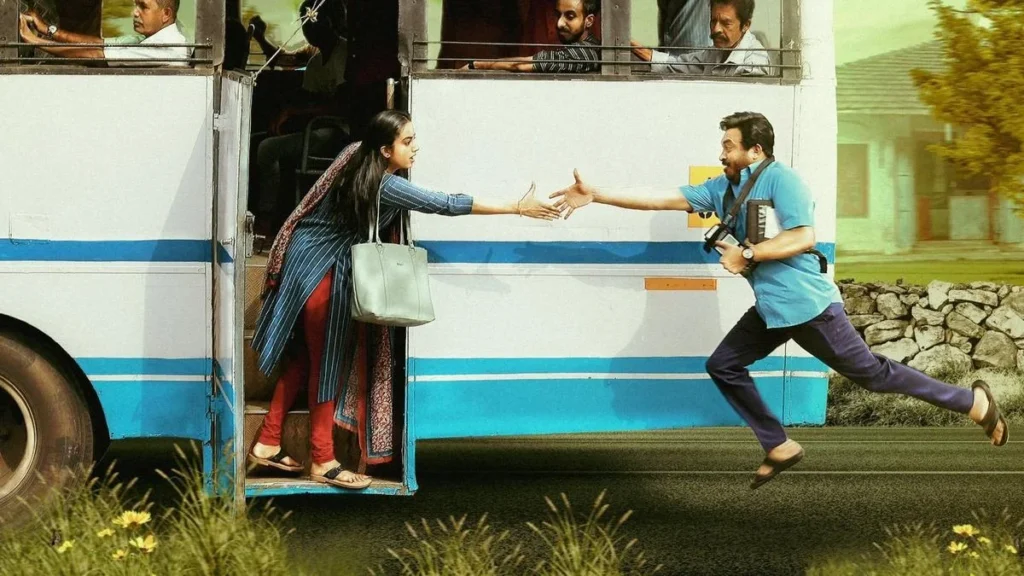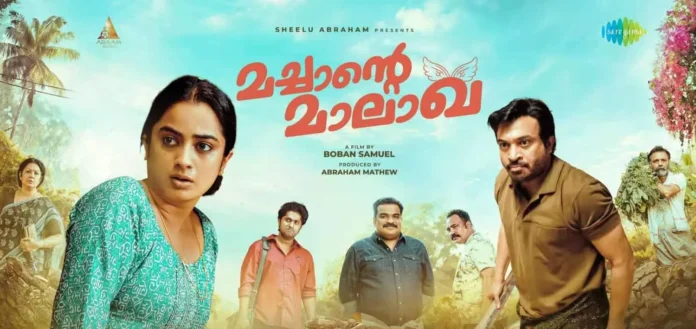Introduction
Malayalam cinema has evolved over the years, embracing diverse narratives and progressive storytelling. However, some films still attempt to hold onto outdated themes, and Machante Malakha falls into this category. Directed by Boban Samuel, the film presents a skewed perspective on gender roles, attempting to paint men as perpetual victims while portraying women as scheming antagonists. Unfortunately, this regressive theme is further burdened by lackluster filmmaking and uninspired performances.
A Story That Feels Outdated
The film begins as a typical love story, following Sajeevan (Soubin Shahir), a bus conductor who falls for Bijimol (Namitha Pramod), a regular passenger. However, the film’s underlying narrative reveals its true agenda early on when Sajeevan’s initial love interest leaves him to marry a wealthy man. This incident sets the stage for a story that subtly aligns with the grievances of modern men’s rights associations, portraying men as victims of manipulative women.
Bijimol’s character is inconsistently written, shifting between emotions within a single scene, making it difficult to empathize with her. Similarly, her mother Kunjimol (Shanthikrishna) is depicted as an oppressive figure who makes her husband’s life miserable. The film’s attempt to hammer its message is evident when even Kunjimol’s granddaughter is shown exhibiting similar aggressive tendencies, reinforcing the idea of men suffering across generations.
A Misguided Take on Gender Issues
While the film attempts to highlight the misuse of laws meant to protect women, it fails to acknowledge the broader reality. Genuine cases of harassment and dowry-related violence still persist in society. However, Machante Malakha chooses to present a one-sided narrative where men are always the victims, ignoring the struggles that many women continue to face.

The final scene, featuring an event organized by the All Kerala Men’s Association—an infamous group known for supporting men accused of harassment—further cements the film’s problematic stance. Instead of presenting a balanced perspective, the movie indulges in one-dimensional storytelling that lacks nuance.
Outdated Filmmaking and Performances
Beyond its problematic themes, Machante Malakha also suffers from uninspired filmmaking. The storytelling style feels reminiscent of early 2000s Malayalam cinema—a period often criticized for its lack of innovation and regressive tropes. The humor falls flat, making it an even more tedious watch.
The performances do little to elevate the weak script. Soubin Shahir, known for his commendable performances in other films, struggles to bring depth to Sajeevan’s character. Namitha Pramod’s Bijimol lacks coherence, making it difficult for audiences to connect with her. Even the cameo appearance by Dhyan Sreenivasan fails to make an impact.
The Verdict: A Film Stuck in the Past
While Malayalam cinema has largely moved beyond regressive storytelling, Machante Malakha serves as an unfortunate reminder of a bygone era. Its outdated themes, uninspired direction, and weak performances make it a disappointing watch. In an industry that continues to push creative boundaries, films like this feel out of place and unnecessary.


